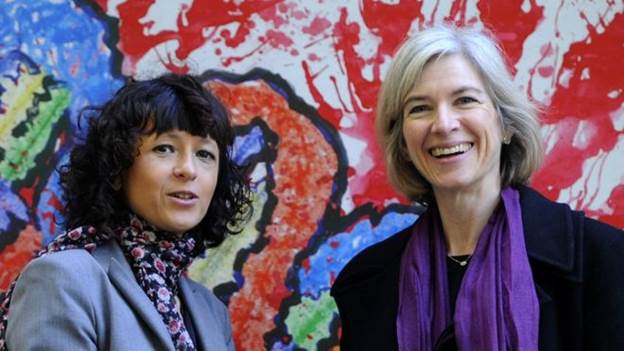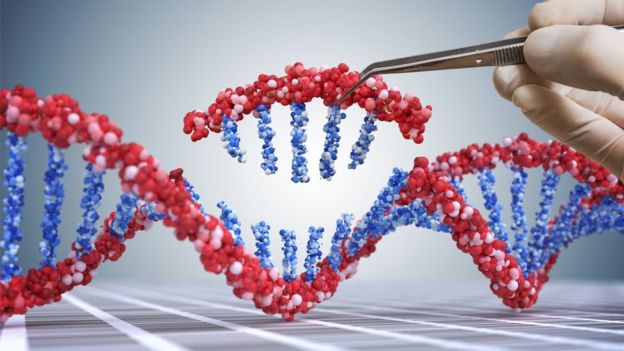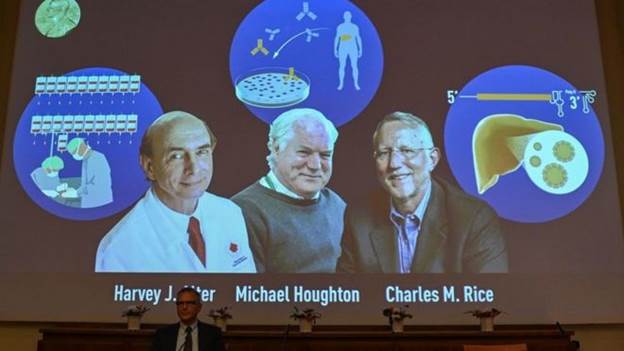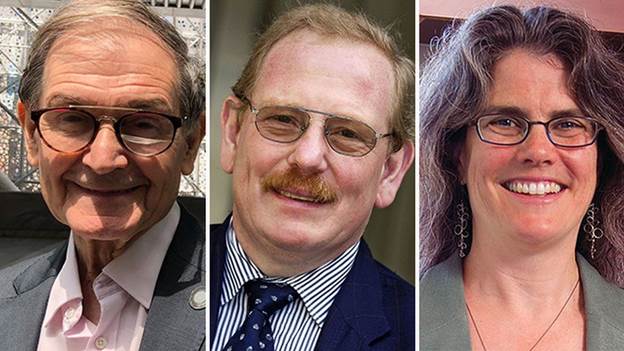2020 Nobel Prizes in Sciences
By Philip Mudartha
Bellevision Media Network
2020 Nobel Prize in Chemistry:
And the award goes to two women scientists for developing the tools to edit DNA.
Emmanuelle Charpentier and Jennifer Doudna are the first two women to share the prize, which honors their work on the technology of genome editing.
Their discovery, known as Crispr-Cas9 "genetic scissors", is a way of making specific and precise changes to the DNA contained in living cells. With this tool, the ability to cut DNA where you want has revolutionized the life sciences. Not only has this technology been transformative for basic research, it could also be used to treat, or even cure, inherited illnesses.
Prof Charpentier, from the Max Planck Unit for the Science of Pathogens in Berlin, said it was an emotional moment when she learned about the award. "When it happens, you’re very surprised, and you think it’s not real. But obviously it’s real," she said.

During Prof Charpentier’s studies of the bacterium Streptococcus pyogenes, she discovered a previously unknown molecule called tracrRNA. Her work showed that tracrRNA is part of the organism’s system of immune defense.
This system, known as Crispr-Cas, disarms viruses by cleaving their DNA - like genetic scissors.

In 2011, the same year she published this work, Prof Charpentier began collaboration with Prof Doudna, from the University of California, Berkeley. They met in San Juan and decided to work together. Together, they recreated the bacterium’s genetic scissors in a test tube. They also simplified the scissors’ molecular components so they were easier to use.
In their natural form, the bacterial scissors recognize DNA from viruses. But Charpentier and Doudna showed that they could be reprogrammed to cut any DNA molecule at a predetermined site. They published their findings in a landmark 2012 paper.
The breakthrough DNA snipping technology allowed the "code of life" to be rewritten. Since the discovery of Crispr-Cas9 genetic scissors, the tool has contributed to many important discoveries in basic research. In medicine, clinical trials of new cancer therapies are underway.
The technology also holds the promise of being able to treat or even cure inherited diseases. It is currently being investigated for its potential to treat sickle cell anemia, a blood disorder that affects millions of people worldwide.
The ethical worries of the genome editing technology:
Without regulation, Crispr could equally be used to create "designer babies", opening up an ethical minefield. If genome-edited children grow up and have children, any alterations to their genomes could be passed down through the generations - introducing lasting changes to the human population.
Last year, Chinese scientist He Jiankui was jailed for three years after creating the world’s first gene-edited human babies. He was convicted of violating a government ban by carrying out his own experiments on human embryos, to try to give them protection against HIV.
The technique is the subject of a long-running patent battle in the US. The dispute involves Charpentier and Doudna’s group at the University of California, Berkeley, and a team at MIT and Harvard’s Broad Institute in Cambridge, Massachusetts. The disagreement centers on the use of the Crispr technique in eukaryotic cells - those cells that bundle their DNA in a nucleus. It is in such cells, which are found in higher animals, that the most profitable future applications will exist. The competing institutions claim their scientists made the crucial, most relevant advances.
This year is the first time any of the science prizes has been awarded to two women without a male collaborator also listed on the award.
2020 Nobel Prize for Medicine:
And the award goes to three men scientists for their Hepatitis C discovery.

The 2020 Nobel Prize in Medicine or Physiology is shared by British scientist Michael Houghton and US researchers Harvey Alter and Charles Rice for their discovery of the virus Hepatitis C. The Nobel Prize committee said their discoveries ultimately "saved millions of lives". The virus is a common cause of liver cancer and a major reason why people need a liver transplant.
2020 Nobel Prize for Physics:
And the award goes to three scientists for black hole breakthroughs.

Sir Roger Penrose, Reinhard Genzel and Andrea Ghez share the prize for their work to understand black holes. The award celebrates one of the most exotic objects in the Universe. Black holes are regions of space where gravity is so strong that not even light can escape from them.
(Compiled from various news stories)
Author: Philip Mudartha
Further Reading:
1. Genome sequencing
2. Human genome
3. HIV/Aids
4. Black Holes.
 Write Comment |
Write Comment |  E-Mail To a Friend |
E-Mail To a Friend |
 Facebook |
Facebook |
 Twitter |
Twitter |
 Print
Print 


















